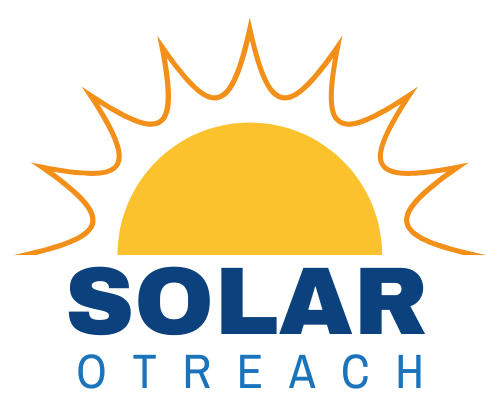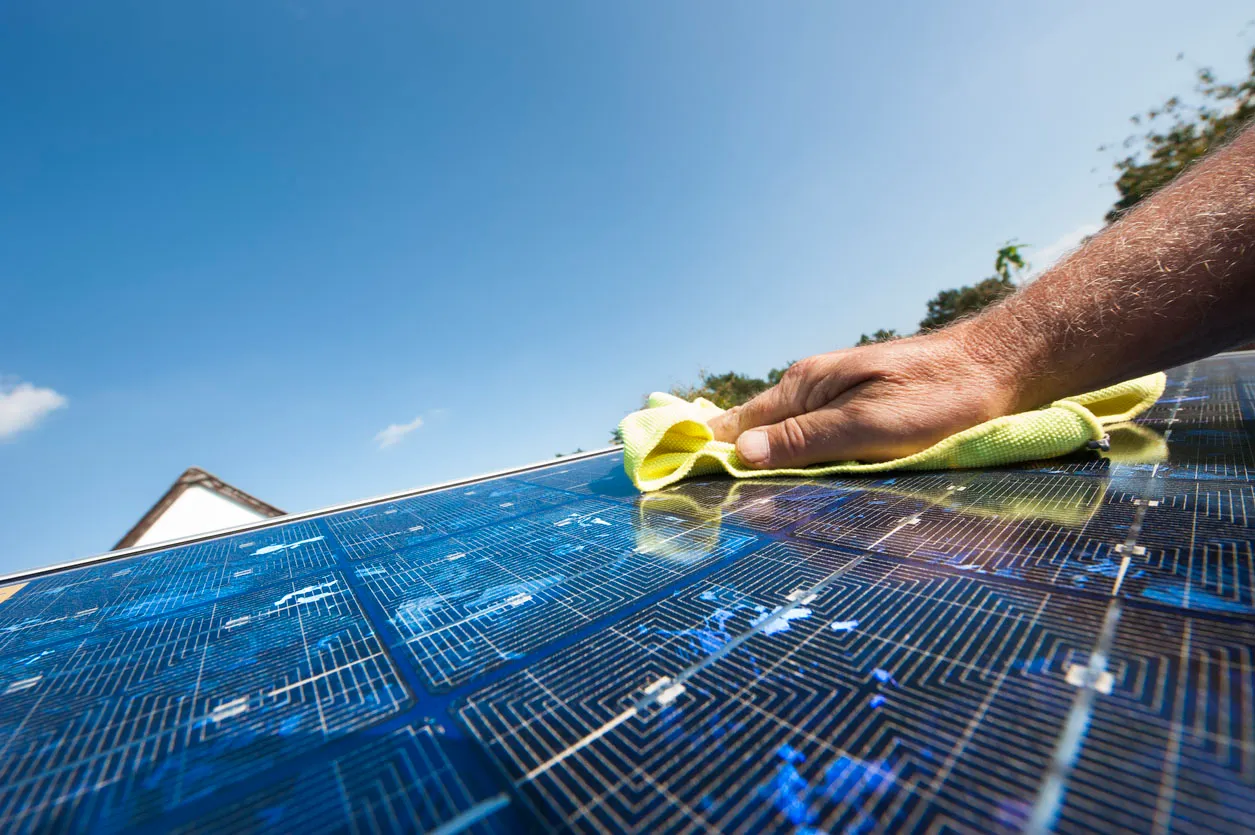Cleaning solar panels is essential to maintain their efficiency and longevity.
However, it’s crucial to clean them correctly to avoid causing damage. There are so many mistakes people make in this process.
That is why I want to address them and offer proper solutions.
1. Using Harsh Cleaning Agents or Abrasive Materials
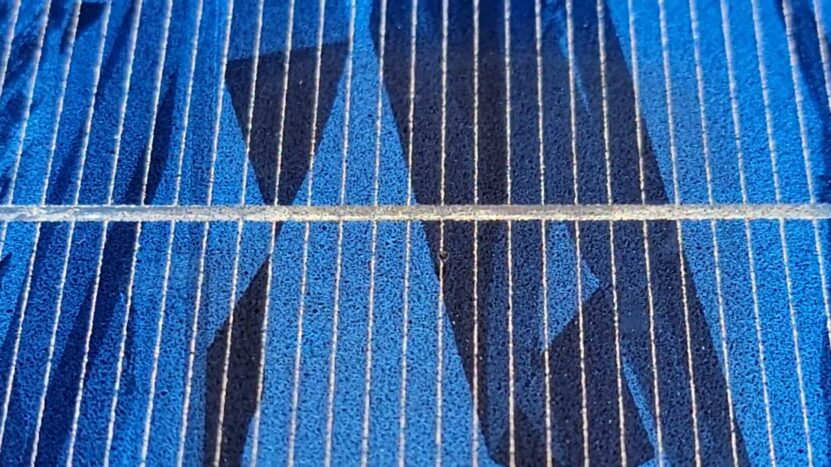
Using harsh chemicals and abrasive materials can severely damage the protective coating on solar panels.
The coating is crucial as it shields the panels from environmental elements and ensures maximum light absorption.
When the coating is compromised, it can lead to scratches on the glass surface of the panels, reducing their ability to absorb sunlight efficiently.
Over time, this can significantly lower the energy output and overall efficiency of your solar panels, negating the benefits of your investment.
Recommended Cleaning Solutions
To avoid this, it is best to use mild cleaning solutions. A simple mixture of water and a gentle detergent can be very effective.
Ensure that the detergent is non-abrasive and free from harsh chemicals. For the cleaning process, opt for soft brushes, sponges, or microfiber cloths.
These materials are gentle on the panels and can be cleaned effectively without causing scratches.
Microfiber cloths, in particular, are excellent as they can trap dust and dirt without the need for excessive scrubbing.
Remember, the goal is to clean the panels without harming the delicate surface.
2. Cleaning During Peak Sunlight Hours
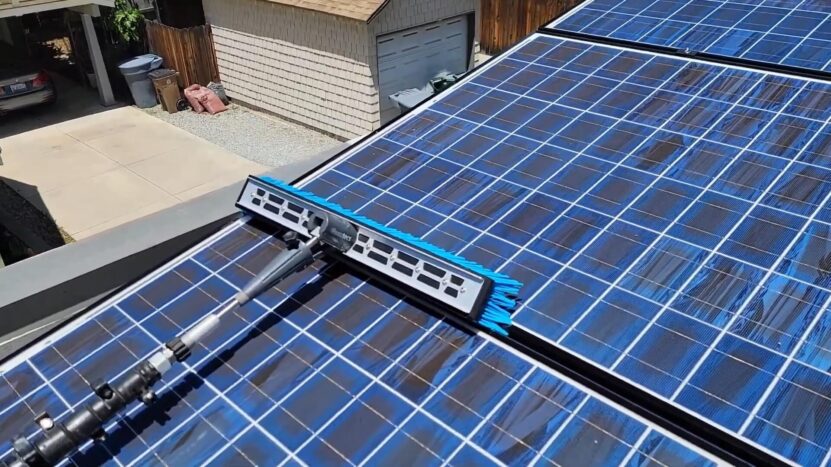
Cleaning solar panels during peak sunlight hours can lead to several issues.
Firstly, cleaning solutions can evaporate quickly when exposed to direct sunlight.
Quick evaporation can leave behind residues on the panels, which can further impede their efficiency.
Moreover, solar panels can become extremely hot under direct sunlight, posing a risk of burns to anyone handling them.
The combination of heat and cleaning agents can also lead to thermal stress on the glass, potentially causing cracks or other damage.
Best Times to Clean
To avoid these risks, it is advisable to clean solar panels in the early morning or late afternoon.
During these times, the panels are cooler, which not only makes the cleaning process safer but also more effective.
Cooler temperatures prevent rapid evaporation of cleaning solutions, ensuring that the panels are thoroughly cleaned without any residue left behind.
Working in cooler conditions reduces the risk of heat-related injuries and allows for a more comfortable and efficient cleaning process.
The practice helps maintain the integrity and performance of your solar panels over time.
3. Incorrect Cleaning Techniques
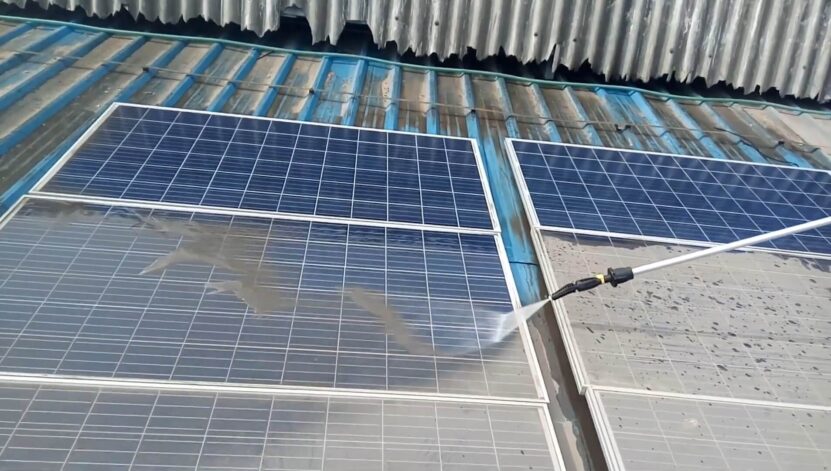
One of the most common mistakes in cleaning solar panels is using excessive force or rough materials.
It can result in scratches or even cracks on the panels.
High-pressure water sprays, which might seem efficient, can cause significant damage by forcing water into the panel’s internal components.
Using sharp objects to remove tough stains or debris is another incorrect technique that can scratch or puncture the surface, compromising the panel’s integrity.
Proper Cleaning Methods
To clean solar panels correctly, begin by rinsing them with water to remove any loose debris.
This step ensures that you don’t scratch the surface while scrubbing.
Then, use gentle, circular motions with a soft brush or sponge to clean the panels.
Circular motions help in evenly distributing the cleaning effort without applying too much pressure on any single spot.
Avoid using high-pressure water sprays; instead, a gentle stream of water is sufficient.
Never use sharp objects to scrape off dirt or bird droppings. If a spot is particularly stubborn, let the cleaning solution sit for a bit longer to loosen it before gently wiping it away.
These methods ensure your solar panels are cleaned effectively without risking damage.
4. Neglecting Safety Measures
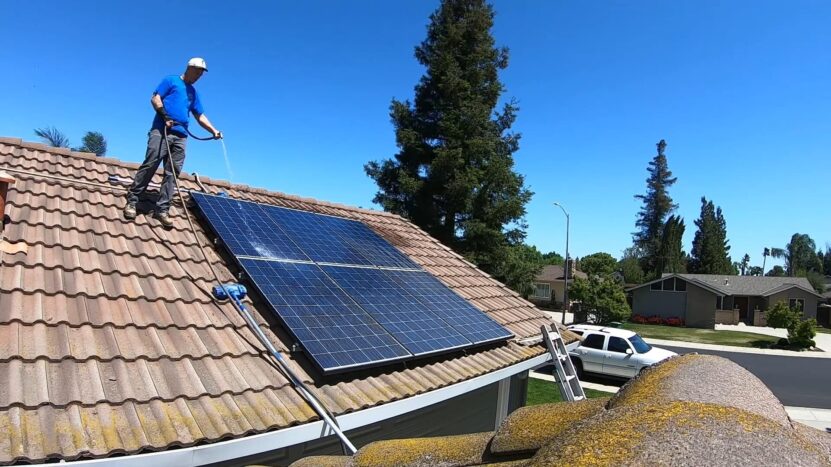
Safety should always be a priority when cleaning solar panels, as they are often installed at significant heights.
The risk of falls and injuries is substantial if proper safety measures are not taken.
Working on solar installations involves dealing with electrical components, which can pose additional risks if not handled correctly.
Safety Precautions
To ensure safety, always use a stable ladder when accessing rooftop panels.
Wearing appropriate personal protective equipment (PPE), such as gloves, non-slip shoes, and safety harnesses, can greatly reduce the risk of accidents.
For installations that are particularly high or difficult to reach, it might be wise to hire experienced and equipped professional cleaners to handle such tasks safely.
Ensuring that all safety protocols are followed and that the work complies with local safety standards, is crucial.
Regular safety inspections of your cleaning equipment and setup can also help in identifying and mitigating potential hazards.
5. Ignoring Regular Maintenance and Inspections
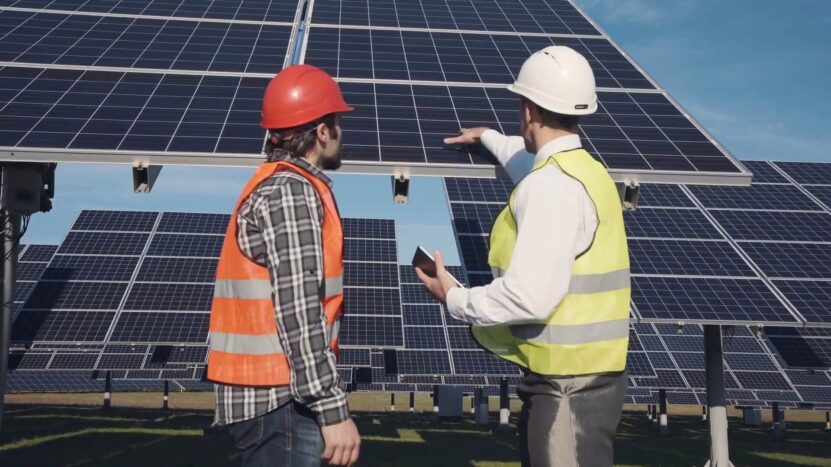
Regular maintenance and inspections are vital for the optimal performance of solar panels.
Neglecting this aspect can accumulate dirt, debris, and bird droppings, significantly reducing the panels’ efficiency.
Over time, this can result in a noticeable drop in energy output.
Loose connections or physical damage may go unnoticed, potentially leading to more severe issues such as electrical faults or reduced panel lifespan.
Maintenance Recommendations
To prevent these problems, conduct regular inspections to identify and address any issues promptly.
Cleaning the panels at least twice a year is generally recommended, though more frequent cleaning might be necessary in particularly dusty or pollen-heavy areas.
During these inspections, ensure that all connections are tight and look for any signs of physical damage, such as cracks or loose mounting hardware.
Addressing these issues early can prevent more significant problems down the line and help maintain the efficiency and longevity of your solar panels.
Regular maintenance not only ensures optimal performance but also extends the life of your solar energy system, maximizing your return on investment.
